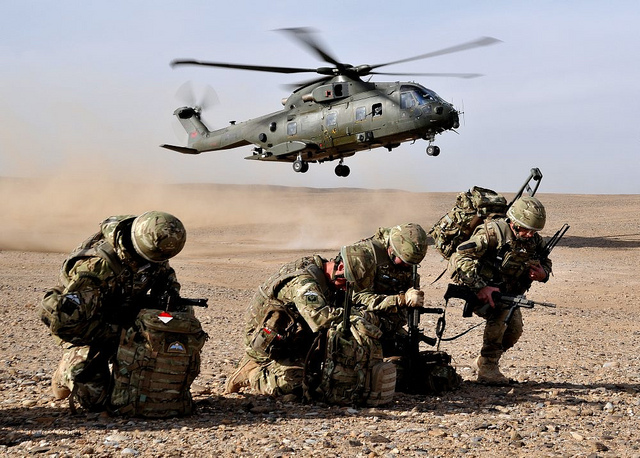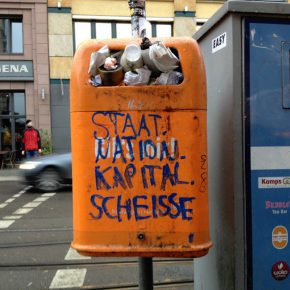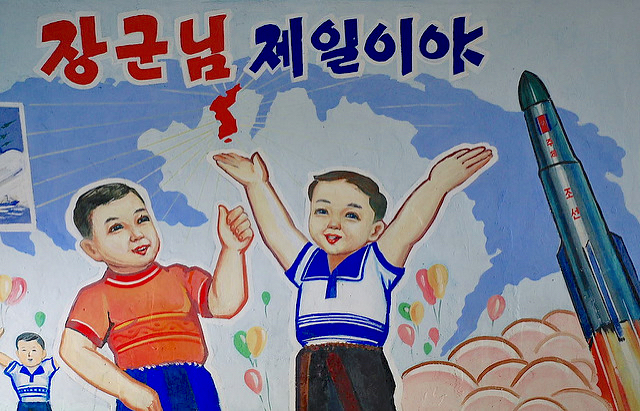The struggle of Democracy and Reason against Autocracy and Brute Force, on land and in the air, upon the sea and under the sea, is reaching its climax. With each succeeding month the ignoble foe has smirched himself with new atrocities which yet in the end bring their own terrible retribution.
Three of the bloodiest years in the world’s history lie behind us; but these years of agony and self-sacrifice, of heroic achievements, of indomitable purpose and unswerving loyalty to an ideal, are surely three of the most tremendous in the annals of the British Empire.
I am to tell something of what Britain has accomplished during these awful three years, of the mighty changes she has wrought in this short time, of how, with her every thought and effort bent in the one direction, she has armed and equipped herself and many of her allies; of the armies she has raised, the vast sums she has expended and the munitions and armaments she has amassed.
For truly Britain has given and is giving much—her men and women, her money, her very self; the soul of Britain and her Empire is in this conflict, a soul that grows but the more steadfast and determined as the struggle waxes more deadly and grim. Faint hearts and fanatics there are, of course, who, regardless of the future, would fain make peace with the foe unbeaten, a foe lost to all shame and honourable dealing, but the heart of the Empire beats true to the old war-cry of “Freedom or Death.”

Much has been written concerning Ypres, but more, much more, remains to be written. Some day, in years to come, when the roar of guns has been long forgotten, and Time, that great and beneficent consoler, has dried the eyes that are now wet with the bitter tears of bereavement and comforted the agony of stricken hearts, at such a time some one will set down the story of Ypres in imperishable words; for round about this ancient town lie many of the best and bravest of Britain’s heroic army.
Thick, thick, they lie together, Englishman, Scot and Irishman, Australian, New Zealander, Canadian and Indian, linked close in the comradeship of death as they were in life; but the glory of their invincible courage, their noble self-sacrifice and endurance against overwhelming odds shall never fade. Surely, surely while English is spoken the story of “Wipers” will live on for ever and, through the coming years, will be an inspiration to those for whom these thousands went, cheering and undismayed, to meet and conquer Death.
Ypres, as all the world knows, forms a sharp salient in the British line, and is, therefore, open to attack on three sides; and on these three sides it has been furiously attacked over and over again, so very often that the mere repetition would grow wearisome. And these attacks were day-long, week- and sometimes month-long battles, but Britain’s army stood firm.
In these bad, dark days, outnumbered and out-gunned, they never wavered. Raked by flanking fire they met and broke the charges of dense-packed foemen on their front; rank upon rank and elbow to elbow the Germans charged, their bayonets a sea of flashing steel, their thunderous shouts drowning the roar of guns, and rank on rank they reeled back from British steel and swinging rifle-butt, and German shouts died and were lost in British cheers.

Days came and went, whole regiments were wiped out, but they held on. The noble town behind them crumbled into ruin beneath the shrieking avalanche of shells, but they held on. German and British dead lay thick from British parapet to Boche wire, and over this awful litter fresh attacks were launched daily, but still they held on, and would have held and will hold, until the crack of doom if need be—because Britain and the Empire expect it of them.
“It’s generally pretty lively here,” said our Intelligence Officer, as I leaned forward to pass him the matches.
“We’re going to speed up a bit—road’s a bit bumpy, so hold on.” Guns were roaring near and far, and in the air above was the long, sighing drone of shells as we raced forward, bumping and swaying over the uneven surface faster and faster, until, skidding round a rather awkward corner, we saw before us a low-lying, jagged outline of broken walls, shattered towers and a tangle of broken roof-beams—all that remains of the famous old town of Ypres. And over this devastation shells moaned distressfully, and all around unseen guns barked and roared.
So, amidst this pandemonium our car lurched into shattered “Wipers”, past the dismantled water-tower, uprooted from its foundations and leaning at a more acute angle than will ever the celebrated tower of Pisa, past ugly heaps of brick and rubble—the ruins of once fair buildings, on and on until we pulled up suddenly before a huge something, shattered and formless, a long façade of broken arches and columns, great roof gone, mighty walls splintered, cracked and rent—all that “Kultur” has left of the ancient and once beautiful Cloth Hall.
“Roof’s gone since I was here last,” said the Intelligence Officer, “come this way. You’ll see it better from over here.” So we followed him and stood to look upon the indescribable ruin.
“There are no words to describe—that,” said N. at last, gloomily.
“No,” I answered. “Arras was bad enough, but this—!”
“Arras?” he repeated. “Arras is only a ruined town. Ypres is a rubbish dump. And its Cloth Hall is—a bad dream.” And he turned away. Our Intelligence Officer led us over mounds of fallen masonry and débris of all sorts, and presently halted us amid a ruin of splintered columns, groined arch and massive walls, and pointed to a heap of rubbish he said was the altar.
“This is the Church St. Jean,” he explained, “begun, I think, in the eleventh or twelfth century and completed somewhere about 1320—”
“And,” said N., “finally finished and completely done for by ‘Kultur’ in the twentieth century, otherwise I guess it would have lasted until the 220th century—look at the thickness of the walls.”
“And after all these years of civilisation,” said I.
“Civilisation,” he snorted, turning over a fragment of exquisitely carved moulding with the toe of his muddy boot, “civilisation has done a whole lot, don’t forget—changed the system of plumbing and taught us how to make high explosives and poison gas.”

Gloomily enough we wandered on together over rubbish piles and mountains of fallen brickwork, through shattered walls, past unlovely stumps of mason-work that had been stately tower or belfry once, beneath splintered arches that led but from one scene of ruin to another, and ever our gloom deepened, for it seemed that Ypres, the old Ypres, with all its monuments of mediæval splendour, its noble traditions of hard-won freedom, its beauty and glory, was passed away and gone for ever.
“I don’t know how all this affects you,” said N., his big chin jutted grimly, “but I hate it worse than a battlefield. Let’s get on over to the Major’s office.”
We went by silent streets, empty except for a few soldierly figures in hard-worn khaki, desolate thoroughfares that led between piles and huge unsightly mounds of fallen masonry and shattered brickwork, fallen beams, broken rafters and twisted ironwork, across a desolate square shut in by the ruin of the great Cloth Hall and other once stately buildings, and so to a grim, battle-scarred edifice, its roof half blown away, its walls cracked and agape with ugly holes, its doorway reinforced by many sandbags cunningly disposed, through which we passed into the dingy office of the Town Major.
As we stood in that gloomy chamber, dim-lighted by a solitary oil lamp, floor and walls shook and quivered to the concussion of a shell—not very near, it is true, but quite near enough.
The Major was a big man, with a dreamy eye, a gentle voice and a passion for archæology. In his company I climbed to the top of a high building, whence he pointed out, through a convenient shell hole, where the old walls had stood long ago, where Vauban’s star-shaped bastions were, and the general conformation of what had been present-day Ypres; but I saw only a dusty chaos of shattered arch and tower and walls, with huge, unsightly mounds of rubble and brick—a rubbish dump in very truth.
Therefore I turned to the quiet-voiced Major and asked him of his experiences, whereupon he talked to me most interestingly and very learnedly of Roman tile, of mediæval rubble-work, of herringbone and Flemish bond. He assured me also that (Deo volente) he proposed to write a monograph on the various epochs of this wonderful old town’s history as depicted by its various styles of mason-work and construction.
“I could show you a nearly perfect aqueduct if you have time,” said he.
“I’m afraid we ought to be starting now,” said the Intelligence Officer; “over eighty miles to do yet, you see, Major.”
“Do you have many casualties still?” I enquired.
“Pretty well,” he answered. “The mediæval wall was superimposed upon the Roman, you’ll understand.”
“And is it,” said I as we walked on together, “is it always as noisy as this?”
“Oh, yes—especially when there’s a ‘Hate’ on.”

“Can you sleep?”
“Oh, yes, one gets used to anything, you know. Though, strangely enough, I was disturbed last night—two of my juniors had to camp over my head, their quarters were blown up rather yesterday afternoon, and believe me, the young beggars talked and chattered so that I couldn’t get a wink of sleep—had to send and order them to shut up.”
“You seem to have been getting it pretty hot since I was here last,” said the Intelligence Officer, waving a hand round the crumbling ruin about us.
“Fairly so,” nodded the Major.
“One would wonder the enemy wastes any more shells on Ypres,” said I, “there’s nothing left to destroy, is there?”
“Well, there’s us, you know!” said the Major gently, “and then the Boche is rather a revengeful beggar anyhow—you see, he wasted quite a number of army corps trying to take Ypres. And he hasn’t got it yet.”
“Nor ever will,” said I.
The Major smiled and held out his hand.
“It’s a pity you hadn’t time to see that aqueduct,” he sighed. “However, I shall take some flashlight photos of it—if my luck holds. Good-by.” So saying, he raised a hand to his weather-beaten trench cap and strode back into his dim-lit, dingy office.
And thus in her ruin Ypres has found the Glory Everlasting.
Adapted from Great Britain At War (1918) by Jeffery Farnol. Photographs courtesy of Defence Images and Si Longworth. Published under a Creative Commons license.





